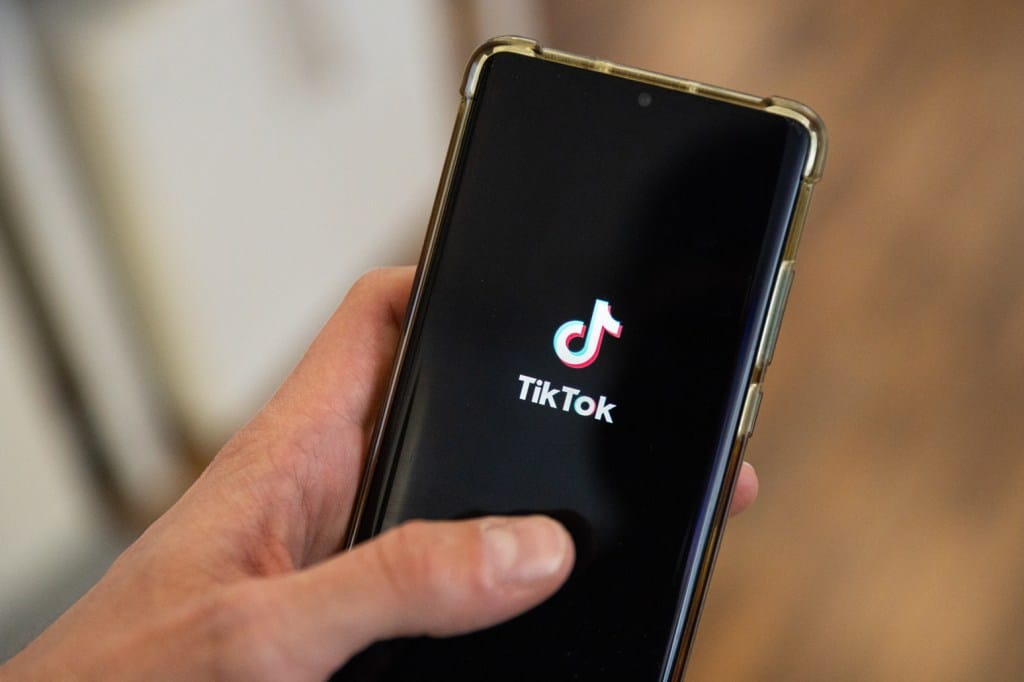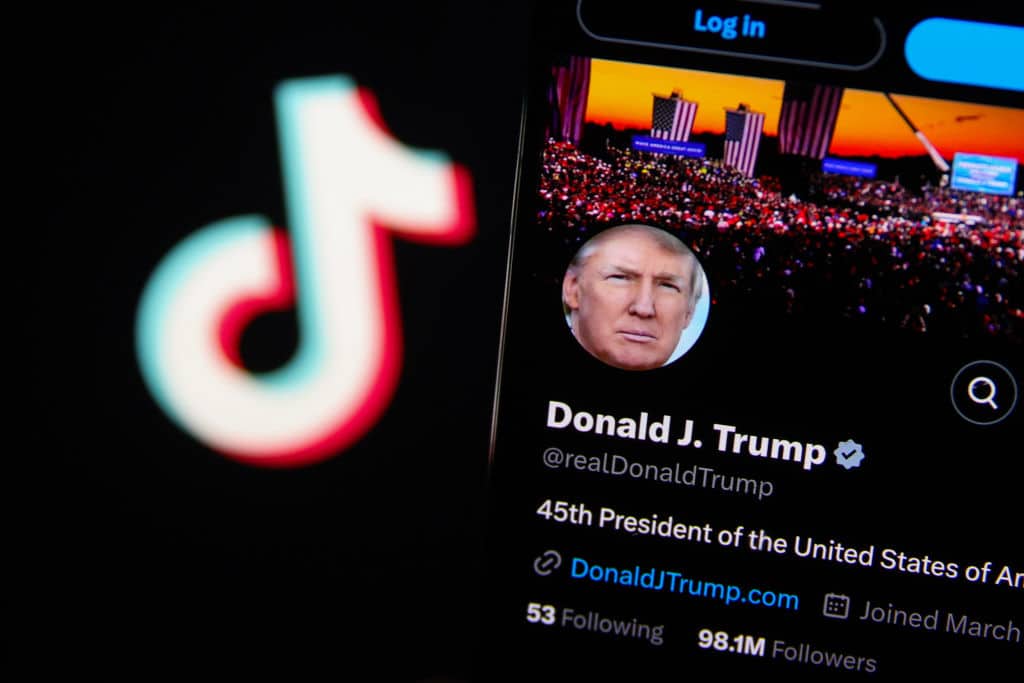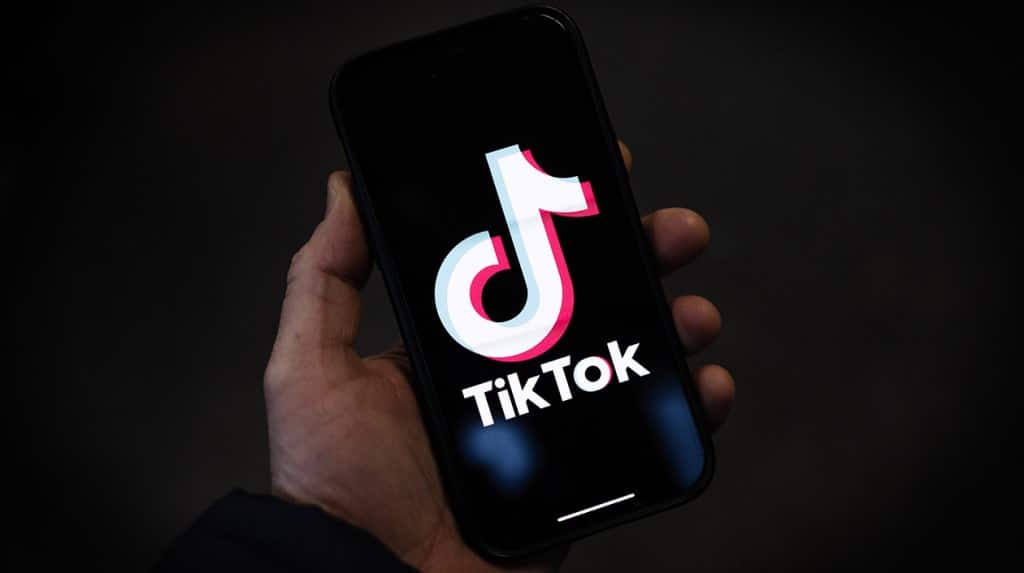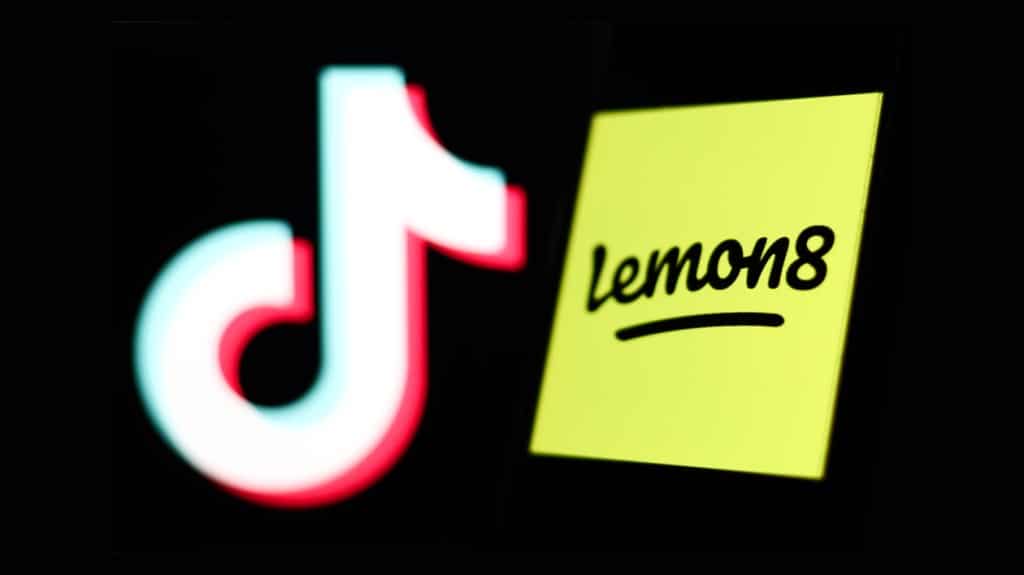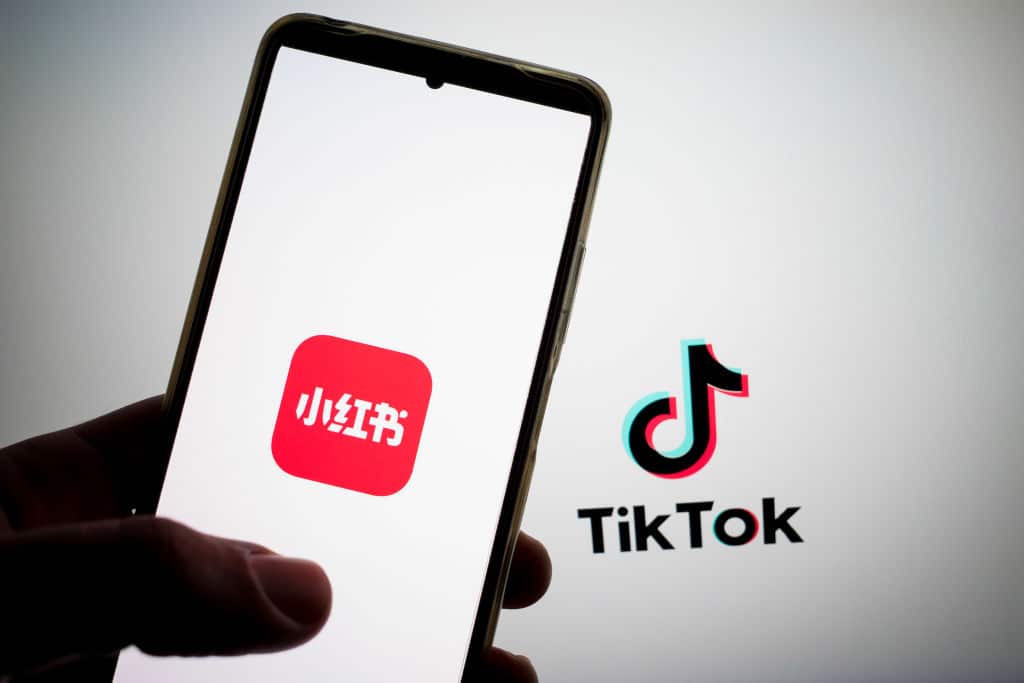tiktok
Page: 5
TikTok said Sunday (Jan. 19) it was restoring service to users in the United States just hours after the popular video-sharing platform went dark in response to a federal ban, which President-elect Donald Trump said he would try to pause by executive order on his first day in office.
Trump said he planned to issue the order to give TikTok’s China-based parent company more time to find an approved buyer before the ban takes full effect. He announced the move on his Truth Social account as millions of U.S. TikTok users awoke to discover they could no longer access the TikTok app or platform.
Google and Apple removed the app from their digital stores to comply with the law, which required them to do so if TikTok parent company ByteDance didn’t sell its U.S. operation by Sunday. The law, which passed with wide bipartisan support in April, allows for steep fines.
Trending on Billboard
The company that runs TikTok in the U.S. said in a post on X that Trump’s post had provided “the necessary clarity and assurance to our service providers that they will face no penalties providing TikTok to over 170 million Americans.”
Some users reported soon after TikTok’s statement that the app was working again, and TikTok’s website appeared to be functioning for at least some people. Even as TikTok was flickering back on, it remained unavailable for download in Apple and Google’s app stores. Neither Apple or Google responded to messages seeking comment Sunday.
The law that took effect Sunday required ByteDance to cut ties with the platform’s U.S. operations due to national security concerns posed by the app’s Chinese roots. However, the statute gave the sitting president authority to grant a 90-day extension if a viable sale was underway.
Although investors made a few offers, ByteDance previously said it would not sell. Trump said his order would “extend the period of time before the law’s prohibitions take effect” and “confirm that there will be no liability for any company that helped keep TikTok from going dark before my order.”
“Americans deserve to see our exciting Inauguration on Monday, as well as other events and conversations,” Trump wrote.
It was not immediately clear how Trump’s promised action would fare from a legal standpoint since the U.S. Supreme Court unanimously upheld the ban on Friday (Jan. 17) and the statute came into force the day before Trump’s return to the White House.
Some lawmakers who voted for the sale-of-ban law, including some of Trump’s fellow Republicans, remain in favor of it. Sen. Tom Cotton of Arkansas warned companies Sunday not to provide TikTok with the technical support it needs to function as it did before.
“Any company that hosts, distributes, services, or otherwise facilitates communist-controlled TikTok could face hundreds of billions of dollars of ruinous liability under the law, not just from (the Justice Department), but also under securities law, shareholder lawsuits, and state AGs,” Cotton wrote on X. “Think about it.”
The on-and-off availability of TikTok came after the Supreme Court ruled that the risk to national security posed by TikTok’s ties to China outweighed concerns about limiting speech by the app or its millions of U.S. users.
When TikTok users in the U.S. tried to watch or post videos on the platform as of Saturday night, they saw a pop-up message under the headline, “Sorry, TikTok isn’t available right now.”
“A law banning TikTok has been enacted in the U.S.,” the message said. “Unfortunately that means you can’t use TikTok for now.”
The service interruption TikTok instituted hours early caught many users by surprise. Experts had said the law as written did not require TikTok to take down its platform, only for app stores to remove it. Current users had been expected to continue to have access to videos until a lack of updates caused the app to stop working.
“The community on TikTok is like nothing else, so it’s weird to not have that anymore,” content creator Tiffany Watson, 20, said Sunday.
Watson said she had been in denial about the looming shutdown and with the space time on her hands plans to focus on bolstering her presence on Instagram and YouTube.
“There are still people out there who want beauty content,” Watson said.
The company’s app also was removed late Saturday from prominent app stores. Apple told customers with its devices that it also took down other apps developed by ByteDance. They included Lemon8, which some influencers had promoted as a TikTok alternative, the popular video editing app CapCut and photo editor Hypic.
“Apple is obligated to follow the laws in the jurisdictions where it operates,” the company said.
Trump’s plan to spare TikTok on his first day in office reflected the ban’s coincidental timing and the unusual mix of political considerations surrounding a social media platform that first gained popularity with often silly videos featuring dances and music clips.
During his first presidential term, Trump in 2020 issued executive orders banning TikTok and the Chinese messaging app WeChat, moves that courts subsequently blocked. When momentum for a ban emerged in Congress last year, however, he opposed the legislation. Trump has since credited TikTok with helping him win support from young voters in last year’s presidential election.
Despite its own part in getting the nationwide ban enacted, the Biden administration stressed in recent days that it did not intend to implement or enforce the ban before Trump takes office on Monday.
In the nine months since Congress passed the sale-or-ban law, no clear buyers emerged, and ByteDance publicly insisted it would not sell TikTok. But Trump said he hoped his administration could facilitate a deal to “save” the app.
TikTok CEO Shou Chew is expected to attend Trump’s inauguration with a prime seating location.
Chew posted a video late Saturday thanking Trump for his commitment to work with the company to keep the app available in the U.S. and taking a “strong stand for the First Amendment and against arbitrary censorship.”
Trump’s choice for national security adviser, Michael Waltz, told CBS News on Sunday that the president-elect discussed TikTok going dark in the U.S. during a weekend call with Chinese President Xi Jinping “and they agreed to work together on this.”
On Saturday, artificial intelligence startup Perplexity AI submitted a proposal to ByteDance to create a new entity that merges Perplexity with TikTok’s U.S. business, according to a person familiar with the matter.
Perplexity is not asking to purchase the ByteDance algorithm that feeds TikTok user’s videos based on their interests and has made the platform such a phenomenon.
Other investors also eyed TikTok. Shark Tank star Kevin O’Leary recently said a consortium of investors that he and billionaire Frank McCourt offered ByteDance $20 billion in cash. Trump’s former treasury secretary, Steven Mnuchin, also said last year that he was putting together an investor group to buy TikTok.
In Washington, lawmakers and administration officials have long raised concerns about TikTok, warning the algorithm that fuels what users see is vulnerable to manipulation by Chinese authorities. But to date, the U.S. has not publicly provided evidence of TikTok handing user data to Chinese authorities or tinkering with its algorithm to benefit Chinese interests.
HipHopWired Featured Video
CLOSE
Source: NurPhoto / Getty / TikTok Ban
Welp, TikTok and its China-based owner ByteDance f***ed around and found out. Late Saturday night, TikTok was officially banned in the U.S., but it’s back up after Donald Trump vowed to save it. Shockingly, the card-collecting video game Marvel Snap and video editing app CapCut are still down for the count.
TikTok went dark last night, causing all the influencers to lose their sh*t and take their grievances to X, Instagram, and wherever else they can hit a publish button.
Last night, TikTok’s 187 million U.S. users were greeted with a message telling them they could no longer use the app and that the company was fortunate that Felon 47, Donald Trump, would work with them to find a solution.
“Sorry, TikTok isn’t available right now. A law banning TikTok has been enacted in the U.S. Unfortunately, that means you can’t use TikTok for now,” the message begins. “We are fortunate that President Trump has indicated that he will work with us on a solution to reinstate TikTok once he takes office. Please stay tuned!”
TikTok cooked 😂🤣 pic.twitter.com/hzQvE5N6gG
— B E A N Z The Gamer Dad(beanzgotgamez.bsky.social) (@BeanzGotGamez) January 19, 2025
https://platform.twitter.com/widgets.js
Gen Z’s nightmare scenario of either having to put their phones down or use other social media platforms to share bad takes and do dance videos came to an end on Sunday after President-elect Trump said on his bullsh*t platform, Truth Social, that he will issue an executive order on Monday to save it.
Per MSNBC:
“I’m asking companies not to let TikTok stay dark!” Trump wrote in a post on Truth Social. “I will issue an executive order on Monday to extend the period of time before the law’s prohibitions take effect, so that we can make a deal to protect our national security. The order will also confirm that there will be no liability for any company that helped keep TikTok from going dark before my order.”
As of this writing, the switch has been flipped back on in the U.S., with the company writing in a post on X, formerly Twitter, “In agreement with our service providers, TikTok is in the process of restoring service. We thank President Trump for providing the necessary clarity and assurance to our service providers that they will face no penalties providing TikTok to over 170 million Americans and allowing over 7 million small businesses to thrive.”
“It’s a strong stand for the First Amendment and against arbitrary censorship. We will work with President Trump on a long-term solution that keeps TikTok in the United States.”
STATEMENT FROM TIKTOK:
In agreement with our service providers, TikTok is in the process of restoring service. We thank President Trump for providing the necessary clarity and assurance to our service providers that they will face no penalties providing TikTok to over 170…
— TikTok Policy (@TikTokPolicy) January 19, 2025
https://platform.twitter.com/widgets.js
The effort to ban TikTok was started by Trump in 2020 pic.twitter.com/7npCMW08qJ
— PatriotTakes 🇺🇸 (@patriottakes) January 17, 2025
https://platform.twitter.com/widgets.js
The TikTok Jig Is Loading….
While this may seem like a win for everyone, some see the jig, accurately pointing out that Donald Trump called for TikTok to be banned during the tail end of his disastrous presidency.
Popular political commentator @2RawTooReal pointed out how Trump and the CEO of TikTok, Shou Zi Chew, are in “cahoots” because Chew will be attending Trump’s now indoor inauguration ceremony. He also points out in his video that Trump wrote the EO (executive order) calling for the platform to be banned, but only for President Biden to revoke it when he took office.
2RawTooReal also points out that the law allows the president to grant TikTok a 90-day extension, allowing TikTok to find a buyer or, as he points out, allow Trump to work with the Republican-controlled Senate and House to pass a bill saving the platform, making Trump look like a hero and a champion of entrepreneurs.
He also points out that Chew shared a video of far-right political activist Charlie Kirk on his TikTok page and that the app buried his and other videos of users fact-checking misinformation about Vice President Kamala Harris.
The TikTok CEO and Donald Trump are in cahoots pic.twitter.com/IZT3HJrmni
— 2RawTooReal (@2RawTooReal) January 19, 2025
https://platform.twitter.com/widgets.js
Marvel Snap Is Still Down
While TikTok is back up, Marvel Snap is still down. Now, why, you might ask? IGN reports that the game was “developed by Second Dinner and was published by ByteDance-owned publisher Nuverse, which is what led to the ban.”
Well damn.
Second Dinner’s Chief Development Officer and Co-Founder, Ben Brode, revealed on BlueSky that the ban surprised his company.
“Unfortunately, Marvel Snap is temporarily unavailable in U.S. app stores and is unavailable to play in the U.S. This was a surprise to Second Dinner and our publisher Nuverse,” Brode wrote. “We’re actively working on getting the game up as soon as possible and will update you once we have more to share.”
He offered those thirsty to log in and give advice, suggesting they should use a VPN.
“FWIW I am hearing that VPN software will allow you to continue playing Marvel Snap in the meantime, as long as you pretend you’re from Canada or something,” he said.
What a mess.
You can see more reactions to the whole TikTok fiasco in the gallery below.
1. Donald Trump is not slick
2. Hit Charlie Kirk with the mean “this you?”
3. Accurate
4. Symone Sanders & The Weekend crew see the jig
5. Glad y’all are happy
6. This gif is always gold
7. Never forget
8. Please, don’t forget that Republicans don’t want to ban assault weapons
As the impending TikTok ban looms over the social media platform, Kesha is reminding fans of the OG “TiK ToK.” The star took shared a video on Thursday (Jan. 16), soundtracked by her breakthrough hit. “TikTok may be temporary but TiK ToK is forever,” she wrote over the selfie-style clip. The 2009 track gave the […]
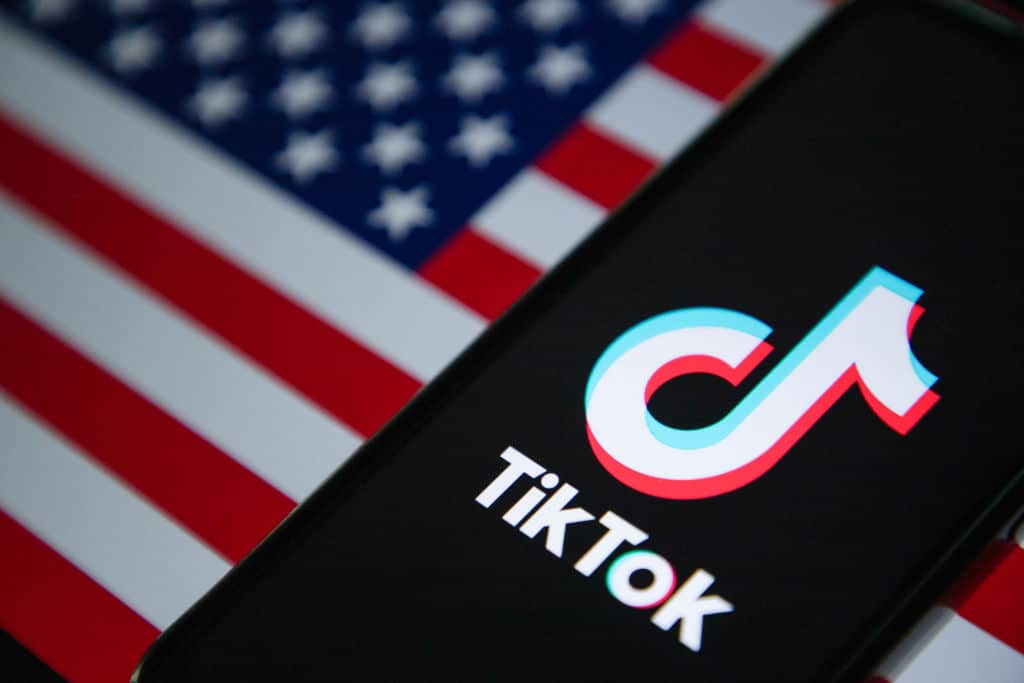
HipHopWired Featured Video
CLOSE
Source: SOPA Images / Getty / TikTok
Welp, it’s not looking good for everyone’s favorite social media platform, TikTok. The Supreme Court upheld the law banning the app in the U.S. if its Chinese owner, ByteDance, couldn’t facilitate a sale.
The clock officially ran out after TikTok’s final attempt to continue operating in the United States. The Supreme Court delivered the death blow, upholding a lower court ruling that ByteDance must sell the app by January 19 due to national security concerns.
“There is no doubt that, for more than 170 million Americans, TikTok offers a distinctive and expansive outlet for expression, means of engagement, and source of community,” an unsigned opinion from the justices read. “But Congress has determined that divestiture is necessary to address its well-supported national security concerns regarding TikTok’s data collection practices and relationship with a foreign adversary. For the foregoing reasons, we conclude that the challenged provisions do not violate petitioners’ First Amendment rights.”
The ban would go into effect under the Protecting Americans from Foreign Controlled Applications Act that President Joe Biden signed.
TikTok’s future in the United States is in dire jeopardy due to no sale on the table that could save it from the ban, forcing social media influencers to find another platform to do their “influencing” to continue making a living.
TikTok’s Fate Is In The Hands of Donald Trump
The outgoing Biden administration is punting on the matter, leaving TikTok’s fate in the hands of the platform’s newest “fan,” President-elect Donald Trump, who said to CNN, “It ultimately goes up to me, so you’re going to see what I’m going to do.”
“Given the sheer fact of timing, the administration recognizes that actions to implement the law simply must fall to the next administration, which takes office on Monday,” the Biden administration said.
“President Biden’s position on TikTok has been clear for months, including since Congress sent a bill in overwhelming, bipartisan fashion to the president’s desk: TikTok should remain available to Americans, but simply under American ownership or other ownership that addresses national security concerns identified by Congress in developing this law,” the statement read by White House Press Secretary Karine Jean Pierre said fresh off the Supreme Court’s ruling.
Trump also confirmed on his sh*tty platform Truth Social that he has spoken with China’s president Xi Jinping, claiming that he brought up TikTok during the conversation, whatever that means.
So What’s Going To Happen With TikTok?
When the ban officially begins, it will be up to the Google and Apple APP stores to enforce it and keep it from being available to users or face potential fines.
According to Deadline, the roughly 187 million Americans currently using the app will still have access to it, but they will not receive routine updates, rendering it a shell.
According to The Information, TikTok is prepared to go dark in the U.S. on Sunday, but the company could also “wait and see” what the Trump administration does.
Who Are The Potential Buyers?
During the previous nightmare that was Donald Trump’s first term, he was in favor of banning or forcing a sale of the app before his flip-flopping on the matter.
Deadline notes that he cannot stop the bipartisan legislation, but he could ask his incoming “Justice Department” not to enforce the ban.
There were rumors that China was considering Elon Musk’s potential purchase of TikTok. What could go wrong with this man owning another social media platform? TikTok has denied those claims.
Even Canadian Trump fan and Shark Tank cast member Kevin O’Leary is part of a formal bid submitted by Frank McCourt-founded Internet advocacy group Project Liberty to potentially buy TikTok without its algorithm to allow the 170 American users to “preserve the platform’s vibrant community, while also giving 170 million American TikTokers the ability to control, protect, and benefit from their data.”
We shall see what happens with the platform, but it looks like it’s a wrap right now.
You can see reactions to the news in the gallery below.
2. What is wrong with y’all ?
3. There might be some truth to this
4. Never forget!
5. Interesting take on the matter
8. Well, you should ask the GOP about most of those matters, TikTok was the only thing Republicans and Democrats agreed on
10. Womp, womp, womp
12. We shall see if his warming up to Donald Trump will help him in the long run
Charlie Puth is saying goodbye to his TikTok followers as a ban of the app looms large in the United States. The hitmaker shared a video of himself playing piano on the platform. After propping up his camera to the side of the keyboard, Puth wordlessly dives into a mellow arrangement of his and Wiz […]
The U.S. Supreme Court on Friday (Jan. 17) upheld a federal statute that will effectively ban TikTok from the country over national security concerns, rejecting the company’s arguments that the law violates the First Amendment.
In a unanimous ruling, the high court said the law – set to go into effect on Sunday — was fair game because the U.S. government has valid fears about China’s control over TikTok, a popular social media service with 170 million American users that has also become a key cog in the modern music industry.
Attorneys for TikTok’s Chinese-owned parent ByteDance had argued that the law was clearly unconstitutional because it violates the First Amendment’s protections for free speech. But in Friday’s decision, the high court was unswayed.
Trending on Billboard
“There is no doubt that, for more than 170 million Americans, TikTok offers a distinctive and expansive outlet for expression, means of engagement, and source of community,” the justices wrote. “But Congress has determined that divestiture is necessary to address its well-supported national security concerns regarding TikTok’s data collection practices and relationship with a foreign adversary.”
The ruling has major implications for the music industry. TikTok has become a key part of the modern music ecosystem – a core promotional tool for labels and a jumping off point for many new artists, albeit one that has occasionally butted heads with rights owners and can sometimes prove difficult to harness into lasting success.
Friday’s decision will allow the ban to go into effect on Sunday, but it’s unclear exactly what will happen next. President-elect Donald Trump, set to take office on Monday, has vowed to “negotiate a resolution” to save the platform. And even outgoing President Joe Biden, who championed and signed the law, has reportedly signaled openness to prevent TikTok from going dark.
The TikTok law, which requires the app’s Chinese-owned parent ByteDance to either sell the app to a U.S. company or face a total ban on January 19, was approved by wide bipartisan majorities in Congress last year and signed by President Biden in April. Proponents have argued that TikTok presents a national security threat because of its connections to the Chinese government and access to millions of Americans.
TikTok and ByteDance sued in May, calling the law “unprecedented” violation of free speech aimed at “silencing” more than 170 million Americans. But in December, a lower federal appeals court rejected those arguments, ruling the law was aimed at protecting Americans from a “foreign adversary nation.”
Friday’s decision upheld that ruling, repeatedly stressing concerns about the Chinese government’s control over TikTok and the information it could pull from it.
“Petitioners do not dispute that the Government has an important and well-grounded interest in preventing China from collecting the personal data of tens of millions of U. S. TikTok users,” the justices wrote. “Nor could they. The platform collects extensive personal information from and about its users.”
Much of the ruling – a so-called “per curiam” decision that was not signed by any particular justice – was spent deciding on the level of “scrutiny” that such a ban should face under the First Amendment. While TikTok’s attorneys argued it was the kind of egregious intrusion into free speech that merits “strict scrutiny” by judges, the high court instead ruled that the law was the kind of less-problematic restriction that warrants only “intermediate scrutiny.”
Under that looser standard, the justices ruled Friday that the TikTok ban passed constitutional muster — deciding that the law served an “important government interest” and didn’t restrict free speech any more than was necessary to accomplish that goal.
The federal government was clearly justified in preventing a foreign adversary from “collecting vast swaths of sensitive data about the 170 million U. S. persons,” the justices wrote. And they said the TikTok ban was sufficiently limited in addressing that specific goal to avoid violating the First Amendment.
“Rather than ban TikTok outright, the Act imposes a conditional ban,” the justices write. “The prohibitions prevent China from gathering data from U. S. TikTok users unless and until a qualified divestiture severs China’s control.”
The government had also separately argued that the TikTok ban was fair game because of the power China could wield by using TikTok’s algorithm to influence Americans. But the justices effectively sidestepped that argument in their decision, saying it was not necessary to decide the case.
Ahead of Friday’s ruling, the music industry was already preparing for such an outcome. As Billboard‘s Elias Leight writes, record labels have been gearing up for the potential of life without TikTok: “Where is new artist discovery happening in 2025 if this app completely disappears?” The live music business has also been preparing to lose the platform, Billboard’s Dave Brooks writes, since festivals and other promoters have increasingly relied upon TikTok in recent years to reach ticket buyers.
Read the Supreme Court’s full decision here.
President Joe Biden won’t enforce a ban on the social media app TikTok that is set to take effect a day before he leaves office on Monday, a U.S. official said Thursday, leaving its fate in the hands of President-elect Donald Trump.
Congress last year, in a law signed by Biden, required that TikTok’s China-based parent company ByteDance divest the company by Jan. 19, a day before the presidential inauguration. The official said the outgoing administration was leaving the implementation of the law — and the potential enforcement of the ban — to Trump.
The official spoke on condition of anonymity in order to discuss internal Biden administration thinking.
Trending on Billboard
Trump, who once called to ban the app, has since pledged to keep it available in the U.S., though his transition team has not said how they intend to accomplish that.
TikTok CEO Shou Zi Chew is expected to attend Trump’s inauguration and be granted a prime seating location on the dais as the president-elect’s national security adviser signals that the incoming administration may take steps to “keep TikTok from going dark.”
Incoming national security adviser Mike Waltz on Thursday told Fox News Channel’s “Fox & Friends” that the federal law that could ban TikTok by Sunday also “allows for an extension as long as a viable deal is on the table.”
The push to save TikTok, much like the move to ban it in the U.S., has crossed partisan lines. Senate Democratic Leader Chuck Schumer said he spoke with Biden on Thursday to advocate for extending the deadline to ban TikTok.
“It’s clear that more time is needed to find an American buyer and not disrupt the lives and livelihoods of millions of Americans, of so many influencers who have built up a good network of followers,” Schumer said Thursday on the Senate floor.
Democrats had tried on Wednesday to pass legislation that would have extended the deadline, but Republican Sen. Tom Cotton of Arkansas blocked it. Cotton, chair of the Senate Intelligence Committee, said that TikTok has had ample time to find a buyer.
“TikTok is a Chinese Communist spy app that addicts our kids, harvests their data, targets them with harmful and manipulative content, and spreads communist propaganda,” Cotton said.
TikTok CEO’s is expected to be seated on the dais for the inauguration along with tech billionaires Elon Musk, who is CEO of SpaceX, Meta CEO Mark Zuckerberg, OpenAI CEO Sam Altman and Amazon founder Jeff Bezos, according to two people with the matter. The people spoke on condition of anonymity to discuss internal planning.
Last week, the Supreme Court heard oral arguments in a legal challenge to the statute brought by TikTok, its China-based parent company ByteDance, and users of the app. The Justices seemed likely to uphold the law, which requires ByteDance to divest TikTok on national security grounds or face a ban in one of its biggest markets.
“If the Supreme Court comes out with a ruling in favor of the law, President Trump has been very clear: Number one, TikTok is a great platform that many Americans use and has been great for his campaign and getting his message out. But number two, he’s going to protect their data,” Waltz said on Wednesday.
“He’s a deal maker. I don’t want to get ahead of our executive orders, but we’re going to create this space to put that deal in place,” he added.
Separately on Wednesday, Pam Bondi, Trump’s pick for attorney general, dodged a question during a Senate hearing on whether she’d uphold a TikTok ban.
Trump has reversed his position on the popular app, having tried to ban it during his first term in office over national security concerns. He joined TikTok during his 2024 presidential campaign and his team used it to connect with younger voters, especially male voters, by pushing content that was often macho and aimed at going viral. He pledged to “save TikTok” during the campaign and has credited the platform with helping him win more youth votes.
The times they are a-changin’, and with just a few days to go before a potential U.S. ban of TikTok, veteran musician Bob Dylan has finally joined the popular video sharing app.
Explore
Explore
See latest videos, charts and news
See latest videos, charts and news
83-year-old Dylan made his debut on TikTok on Tuesday (Jan. 14), sharing a single post which urges potential followers to “Explore the world of Bob Dylan, now on TikTok”. The accompanying video features numerous clips, stills, and record covers from Dylan’s lengthy career, soundtracked to clips of “Like a Rolling Stone”, “Knockin’ on Heaven’s Door”, “Hurricane”.
While Dylan’s appearance on the app in the wake of the release of James Mangold’s A Complete Unknown biopic has been well-received by his fanbase, much of the attention is being focused on his somewhat late arrival given the impending TikTok Ban.
Trending on Billboard
“You’ve got 30 minutes king,” wrote one user on Dylan’s post, while another added, “bob dylan save tiktok.” Others still made reference to his catalog in their posts, noting that “tiktok is knocking on heavens door”.
As it stands, TikTok is facing an imminent ban because the American government is worried about its Chinese ownership. After the Supreme Court last month agreed to hear TikTok’s challenge to the law that would either force ByteDance to sell the app or bar it from the U.S., the Court’s imminent decision means that if the law is upheld, ByteDance will be forced to sell off the app or face a ban on Sunday (Jan. 19).
Dylan’s immediate future, however, looks a little more certain currently, especially given that the response to A Complete Unknown has seen his catalog earn 11.6 million U.S. on-demand streams in the week ending Dec. 26.
While it’s unknown whether Dylan’s debut on TikTok is part of a biopic-inspired decision to reach a newer fanbase, it does come about shortly after his recent decision to ostensibly begin using social media with greater frequency. In November, Dylan shared a Tweet praising a performance from Nick Cave and the Bad Seeds in France, leading Cave to respond with gratitude.
“I was elated to think Bob Dylan had been in the audience,” Cave wrote on his sporadically-updated Red Hand Files website. “And since I doubt I’ll get an opportunity to thank him personally, I’ll thank him here. Thank you, Bob!”
As U.S. TikTok users brace for a potential ban of the platform, some of them are actively testing other options: Two apps with TikTok-like characteristics, RedNote and Lemon8, are now the most popular free downloads in Apple’s App Store.
Lemon8 launched in the U.S. in February 2023 and cracked the top 20 on the Apple App Store four months later, according to Sensor Tower. Like TikTok, Lemon8 features a “For You” feed that recommends clips and a “following” feed that serves up videos from creators that users follow. Sensor Tower reported in October that 94% of Lemon8 users are women and that the app had been downloaded 52 million times globally.
RedNote, which was founded in 2013, is much bigger: Bloomberg recently reported that it has more than 300 million monthly active users and that it made $1 billion in profit in 2024. The platform has a trending feed that resembles TikTok’s, allowing users to vertically scroll through short-form videos. It also incorporates regular photos, text posts, and e-commerce; one tester described it as “Instagram meets TikTok meets Reddit.”
Trending on Billboard
Both Lemon8 and RedNote are owned by Chinese entities — in fact, Lemon8 is owned by ByteDance, TikTok’s parent company. That could mean these apps also have a precarious future in the U.S., as TikTok is facing a ban because the American government is worried about its Chinese ownership.
“I’ve been concerned, literally for years, that because TikTok is owned by ByteDance, a Chinese firm, and every company — based upon Chinese law — has to be first and foremost loyal to the Communist Party of China, not to their shareholders or customers, that TikTok has posed a national security concern,” Sen. Mark Warner said earlier this month. His concerns would presumably extend to other ByteDance-owned companies, like CapCut and Lemon8.
In December, the Supreme Court agreed to hear TikTok’s challenge to the law that would either force ByteDance to sell the app or bar it from the U.S. President-elect Donald Trump also asked the court to pause the ban, promising to “resolve the issues at hand through political means once he takes office.”
But after the Supreme Court hearing last week, most legal experts believe the justices will uphold the law. In that case, ByteDance would have to offload TikTok or face a ban on Jan. 19.
At the Supreme Court hearing, Justice Brett Kavanaugh claimed that China could use data harvested from TikTok to “develop spies, to turn people, to blackmail people.” And Chief Justice John Roberts asked how the court was “supposed to ignore the fact that the ultimate parent [company] is, in fact, subject to doing intelligence work for the Chinese government?”
With TikTok’s possible prohibition just days away, some labels have already started gaming out alternative marketing strategies.
“It’s hard to imagine a reality where TikTok actually goes down,” one executive told Billboard in December. “But we need to be prepared.”
HipHopWired Featured Video
CLOSE
TikTok, the wildly popular social media app that has made stars among some of its users and exploded as a commerce hub, is under the threat of being banned or forced to sell off its assets. With the threat of TikTok going away, thousands of users are flocking to the Chinese social media app RedNote and discovering a new community in the process.
The United States Supreme Court is currently weighing a decision on a law that would ban TikTok in the country over national security concerns and the fact it is owned by a Chinese company. The proposed deadline is January 19, and the nation’s highest court has previously heard arguments from the social media brand’s parent company ByteDance and the incoming Trump administration’s position thus far is to keep access open to the app in the States.
RedNote, which is also known as Xiaohongshu, first launched in 2013 as a shopping destination but now has expanded into a full-on social media hub where users share various forms of content including the short-form video format TikTok is known for. According to a report from Reuters, over 700,000 users joined RedNote in the course of two days with a reported 50,000 Americans among that number but pales in comparison to the roughly 150 million American users of TikTok.
RedNote is currently the second most popular free app on Apple’s App Store. The outlet also added that Lemon8, which is a social media app owned by ByteDance, has seen increased user numbers as well.
On X, the massive social media defection is being documented with some revealing the language barriers users are facing and how some Americans are helping Chinese users improve their English. With some of the stringent laws in China, users have been careful in what they share and discuss on the app but the influx of users is seemingly welcomed.
We’ve got some reactions from X regarding the TikTok defection to RedNote below.
—
Photo: Getty

 State Champ Radio
State Champ Radio 